- News
- Reviews
- Bikes
- Components
- Bar tape & grips
- Bottom brackets
- Brake & gear cables
- Brake & STI levers
- Brake pads & spares
- Brakes
- Cassettes & freewheels
- Chains
- Chainsets & chainrings
- Derailleurs - front
- Derailleurs - rear
- Forks
- Gear levers & shifters
- Groupsets
- Handlebars & extensions
- Headsets
- Hubs
- Inner tubes
- Pedals
- Quick releases & skewers
- Saddles
- Seatposts
- Stems
- Wheels
- Tyres
- Tubeless valves
- Accessories
- Accessories - misc
- Computer mounts
- Bags
- Bar ends
- Bike bags & cases
- Bottle cages
- Bottles
- Cameras
- Car racks
- Child seats
- Computers
- Glasses
- GPS units
- Helmets
- Lights - front
- Lights - rear
- Lights - sets
- Locks
- Mirrors
- Mudguards
- Racks
- Pumps & CO2 inflators
- Puncture kits
- Reflectives
- Smart watches
- Stands and racks
- Trailers
- Clothing
- Health, fitness and nutrition
- Tools and workshop
- Miscellaneous
- Buyers Guides
- Features
- Forum
- Recommends
- Podcast
review
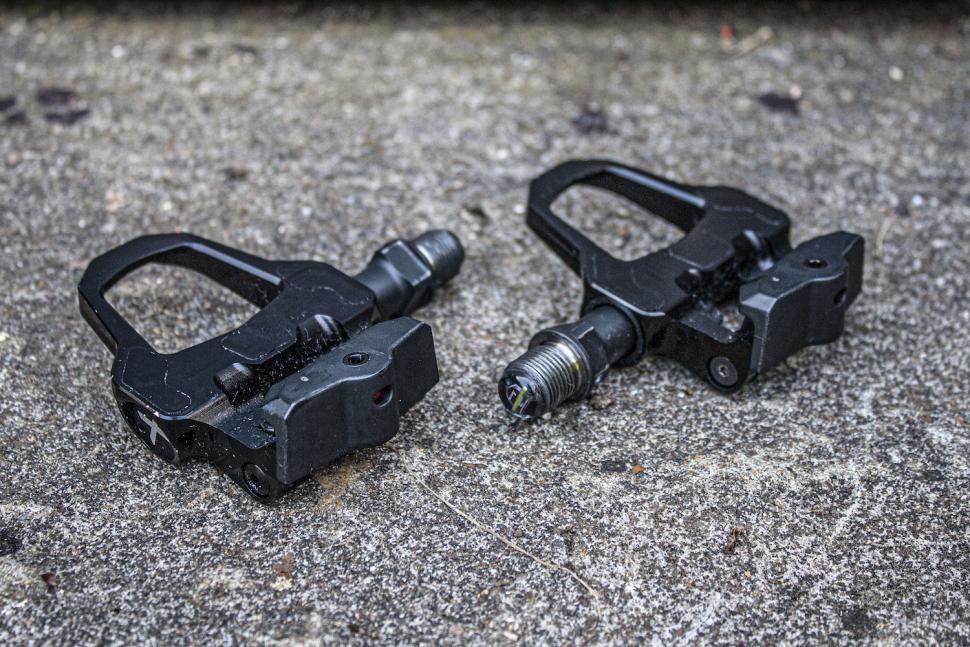 2024 SRM X-Power Road pedal possible hero image.JPG
2024 SRM X-Power Road pedal possible hero image.JPG£1,220.00
VERDICT:
Highly accurate, no-frills pedal power meter built to go the distance
Accuracy
Simple and easy setup
Minimalist design
Light weight
Shimano cleats only (for now)
Price
Weight:
280g
Contact:
At road.cc every product is thoroughly tested for as long as it takes to get a proper insight into how well it works. Our reviewers are experienced cyclists that we trust to be objective. While we strive to ensure that opinions expressed are backed up by facts, reviews are by their nature an informed opinion, not a definitive verdict. We don't intentionally try to break anything (except locks) but we do try to look for weak points in any design. The overall score is not just an average of the other scores: it reflects both a product's function and value – with value determined by how a product compares with items of similar spec, quality, and price.
What the road.cc scores meanGood scores are more common than bad, because fortunately good products are more common than bad.
- Exceptional
- Excellent
- Very Good
- Good
- Quite good
- Average
- Not so good
- Poor
- Bad
- Appalling
The SRM X-Power Road pedals are easy to set up and use, have proved resilient and durable in all weather conditions and provide accurate power readings – they have all the makings to challenge for the best power meter crown. The only down sides are the price that's well north of a grand, and, at least for now, these are only compatible with Shimano cleats.
> Buy now: SRM X-Power Road for €1,427.74 from SRM
With a lineage spanning nearly four decades, SRM is highly respected for its durable and accurate power meters. The German company is considered the pioneer of data harvesting and has been manufacturing what has broadly been considered the most accurate, reliable and best power meters on the planet.
Despite the SRM Look Exakt Dual Pedal system collaboration, SRM has only recently moved into the power pedal market. It launched the X-Power MTB pedals in 2019 at Eurobike and earlier this year SRM unveiled its X-Power Road pedals to capture market share from the now burgeoning power pedal market dominated by Favero Assioma, Garmin Vector (and Rally) and the Wahoo Powrlink Zero pedals.
Form follows function
The SRM X-Power Road pedals are minimalist in look and execution, with no visual evidence they are power meters. This design trait has become a staple of SRM products with the brand sticking with the 'form follows function' approach – no pointless bling on show.
During months of testing, the pedals have held up to all levels of abuse with just a few scuffs and blemishes showing up on the body – and this is down to moving them from bike to bike.
SRM has kept things functional with a pedal-first, power-meter-second philosophy. As such, the pedal body is manufactured from anodised aluminium using an SPD-SL cleat interface and with a weight of just 140g per pedal.
This means the pedals are lighter than the Favero Assioma Duo (150g), Garmin Vector (160g) and Wahoo Powrlink (276g) pedals.
A lot of the weight savings is the result of the battery being housed in the spindle rather than using a pod, a regular replaceable coin cell or a CR1/3N-style option. SRM has nailed things here, especially when it comes to weather protection, as the sensors and rechargeable battery are nestled within the axle and body.
The only visual clue hinting that these might be power pedals is the small charging contact point and clear LED sheath on each thread end. This, however, means you will need a pedal spanner rather than a hex wrench for removal/installation.
The X-Power uses a Shimano-style SPD-SL cleat interface, which provides a rock-solid retention and confidence-inspiring cleat entry and exit. While this may limit their appeal, SRM has not ruled out the possibility of a Look-compatible option in the future. Looking at attributes such as stack height, the SRM X-Power road pedals measure 9.75mm and have a similar 53mm Q-Factor to standard road pedals.
Other features include ANT+ and Bluetooth SMART compatibility, a rechargeable battery (30-hour battery life) and a built-in magnet for cadence measurement.
SRM X-Power Road pedals – installation
At purchase, you have the choice of single- or dual-sided option but you can upgrade later should you go with the former. SRM sent us a pair of dual-sided pedals.
The setup is the most important part as failure to follow the instructions will result in accuracy issues. One recommendation is to go through the installation process again after the first ride – sometimes, the spindle still settles a bit in the threading and I'd suggest several max sprints to ensure this. Another issue is the possibility of incorrectly torquing the pedals – so take your time and get it right the first time.
It's highly recommended that you carry out the calibration as per the instructions on the SRM X-Power app. Failure to do so will impact accuracy. Unlike Favero and Wahoo, which you can fit using a hex spanner, the X-Power pedals – like Garmin Vector 3 – require a pedal spanner.
This is because the clear LED sheath is housed at the edge of the axle thread. These LED lights are responsible for showing the battery level and whether the two pedals are connected.
It's also worth noting that instead of each pedal connecting, the right pedal always connects first and the left pedal plays slave. That said, once you've installed the pedals – the most important step is the angle calibration. In this step, you basically teach the pedal at what angle the spindle is mounted in the crank. If you take the pedal off and put it on a different bike, you must do it again. If you keep it on one bike, it's basically 'set it and forget it'.
Performance and accuracy
I'm a predominantly Look pedal/cleat user, so the SRM X-Power Road pedals did pose some setup issues for me. I've never really used Shimano cleats and, while the positioning and setup are not too far removed from the Look system, there was some faffing to ensure the cleats were properly positioned.
Looking at accuracy, I was never in doubt of the SRM X-Power Road pedals – mainly because I've used SRM products in the past and have always been treated to quality engineering and product performance.
While the pedals returned detailed and consistent power data on outside rides, for comparative data and to test its accuracy compared with other power meters, I used a Wahoo Kickr V6 smart trainer and Power2Max Ngeco as benchmarks. Wahoo's V6 is widely considered the gold standard for smart trainer accuracy and my Power2Max Ngeco spider-based power meter has always tracked closely and within two per cent of the Kickr V6.
As best practice, I always ensure I warm up the smart trainer for at least 30 minutes and zero-offset my power meters for the most accurate results – regardless of the auto-calibration functions.
For the bulk of my testing, I compared the SRM X-Power Road pedals with the Power2Max and both units tracked accurately and within the maximum claimed deviation of two per cent from five-second power up to 20-minute power. In fact, looking at the 30-second, 5-, 10- and 20-minute power metrics – all readings were under two per cent and in most cases spot on.
When analysing the SRM X-Power road pedals against the Power2Max and Wahoo Kickr V6 – albeit at a lesser intensity – the results were as expected and well within the manufacturer's spec of two per cent. If anything, it's only during short-duration sprinting manoeuvres that things drift somewhat apart but still, we're talking a deviation of just over two per cent with the SRM reading higher than the Kickr V6 and Power2Max.
While cadence wasn't really the focus of my testing, all three devices are in line – an average of 71.4rpm (Kickr V6) versus the 70.4rpm of the Power2Max and SRM.
Value
The best pedal power meter space is becoming a tricky landscape as there are numerous options from which to choose. The SRM X-Power Road pedals cost a considerable £1,220 and, while this is expensive, it's a lot cheaper than other SRM options and marks a slightly more 'affordable' entry point into SRM ownership.
The Garmin Vector 3 costs £790, the Favero Assioma Duo £720 and Wahoo's Powrlink Zero £850 and they've all been around for a while.
Dave reviewed the Vector 3s in 2018 and was impressed by their accuracy, design and value.
The market has moved on since then and Favero's Assioma Duo pedals are now regarded as one of the most affordable and accurate pedal power meters available. Jack tested them and said 'they're better value than Garmin's new Vector 3s with no real compromises'. Favero now offers the Assiomas with both Look and Shimano-compatible pedal bodies.
Wahoo's newer Powrlink Zero pedals are compatible with neither Look nor Shimano cleats, but instead are tailored around Speedplay's cleat, which boasts enhanced levels of adjustability and a lower stack height. This might not appeal to all given the complex cleat fitting procedure, and it's also dearer than its Garmin and Favero rivals.
Our best power meters buyer's guide rounds up our top choices.
Conclusion
Despite the no-frills aesthetics and – at least for now – the Shimano-only interface, the SRM X-Power Road pedals are one of the best power pedals I've used. They are easy to install and set up, have stood up well to all sorts of weather and have returned accuracy levels of within a maximum deviation of 1-2% in both indoor and outdoor sessions.
Verdict
Highly accurate, no-frills pedal power meter built to go the distance
road.cc test report
Make and model: SRM X-Power road pedals powermeter
Size tested: Short spindle, dual-sided
Tell us what the product is for and who it's aimed at. What do the manufacturers say about it? How does that compare to your own feelings about it?
"SRM X-Power Road is the answer for everyone who seeks class-leading measurement accuracy, maximum flexibility, and seamless integration in his PowerMeter Pedals. Thanks to the electronics being housed inside the pedal spindle, X-Power pedals can achieve an unmatched level of integration that offers a Stack-Height and Q-Factor on the same level as a standard SPD SL-compatible Pedal. Using SPD SL bindings, the X-Power design follows a minimalist approach with the best functionality for road cycling."
Tell us some more about the technical aspects of the product?
Thanks to a stack height of 9.75 mm and a Q-Factor of 53mm, X-Power looks and feels like a standard pedal. To offer the best protection, the electronics are housed inside the spindle, and the bindings and bodies can be exchanged if damaged in a crash. The PowerMeter Pedals are installed like usual pedals and you can set them up in 30 seconds using the X-Power app. The X-Powers feature high quality SPD SL cleats to offer the best performance for road cyclists.
Rate the product for quality of construction:
9/10
Superbly manufactured to deliver durability and functionality in all conditions. The anodised aluminium pedal body is resistant to wear and scuffs.
Rate the product for performance:
10/10
These pedals not only feel like regular road pedals, but they are also supremely accurate, and track within the claimed maximum deviation of 2%.
Rate the product for durability:
9/10
The pedals have held up to all conditions and weather. There are minimal signs of wear save for a few scuffs from moving the pedal between bikes.
Rate the product for weight (if applicable)
8/10
The SRM X-Power Road are the lightest power-based pedals you can buy, weighing just 140g per pedal. In comparison, Favero Assioma Duo come in at 150g, Garmin Vector at 160g and Wahoo Powrlink at 276g.
Rate the product for comfort (if applicable)
9/10
Rate the product for value:
4/10
At £1,220 the SRM X-Power Road pedals are pricier than their rivals. The Garmin Vector 3 (£790), Favero Assioma Duo (£720) and Wahoo Powrlink Zero (£850) cost significantly less, though the excellent quality of the SRMs helps.
Tell us how the product performed overall when used for its designed purpose
Bulletproof performance and accuracy.
Tell us what you particularly liked about the product
I liked the no-frills look and feel of the SRM pedals. Everything you see serves a purpose – understated engineering at its finest.
Tell us what you particularly disliked about the product
I'd like the option of using a Look cleat. I had to adopt Shimano SPD SL cleats which complicated set up and took a little while to get used to.
How does the price compare to that of similar products in the market, including ones recently tested on road.cc?
It might be the priciest but the SRM X-Power Road pedals are also some of the easiest to use and set up. Accuracy and performance are close to the best on the market.
Did you enjoy using the product? Yes
Would you consider buying the product? Yes – despite the price.
Would you recommend the product to a friend? Yes
Use this box to explain your overall score
Save for the appreciable price, the SRM X-Power Road pedals tick all the boxes if you're looking for a reliable, robust and accurate power meter pedal. They are built to last, come with a two-year warranty and are made by the pioneers of the power meter, a company with 40 years' worth of industry experience. They're very good.
About the tester
Age: 0
I usually ride: My best bike is:
I've been riding for: 5-10 years I ride: Every day I would class myself as: Novice
I regularly do the following types of riding: road racing, time trialling, mtb, Gravel and Elite Cycling eSports
Aaron is the editor of off-road.cc. He completed his BA honours at the University of Cape Town before embarking on a career in journalism. As the former tech editor of Cyclingnews and Bike Perfect, digital editor of Bicycling magazine and associate editor of TopCar, he's travelled the world writing about bikes and anything with wheels for the past 17 years. A competitive racer and Stravaholic, he’s twice ridden the Cape Epic, raced nearly every mountain bike stage race in South Africa and completed the Haute Route Alps. He's also a national-level time triallist and eSports racer, too - having captained South Africa at both the 2022 and 2023 UCI Cycling eSports World Championships.
Latest Comments
- a1white 23 min 24 sec ago
I like how the other car dirver was shocked by him too. Absolutely unreal.
- hawkinspeter 27 min 43 sec ago
I've got a pair of these shoes in the wide fitting and they're very comfortable. I also bought the Vaypor inner soles to go with them which come...
- SecretSam 54 min 52 sec ago
I think it's also worth noting that shoe fits change between shoes within the same brand's range - for example, my bike fitter told me that my...
- Secret_squirrel 1 hour 24 min ago
Seems a bit of a missed opportunity with such a deep unit not to include a little side window for better coverage....
- Paul J 1 hour 32 min ago
No video of the pro-am bike race? Shame.
- David9694 1 hour 52 min ago
Some next level headlining here ...
- David9694 1 hour 54 min ago
It's another school run situation, only with hedge clippings.
- chrisonabike 1 hour 56 min ago
Isn't the issue that speed limits are not seen as "never exceed" limits but apparently "speed you should be going normally". Hence for fairness we...
- hawkinspeter 2 hours 9 min ago
And so it begins......
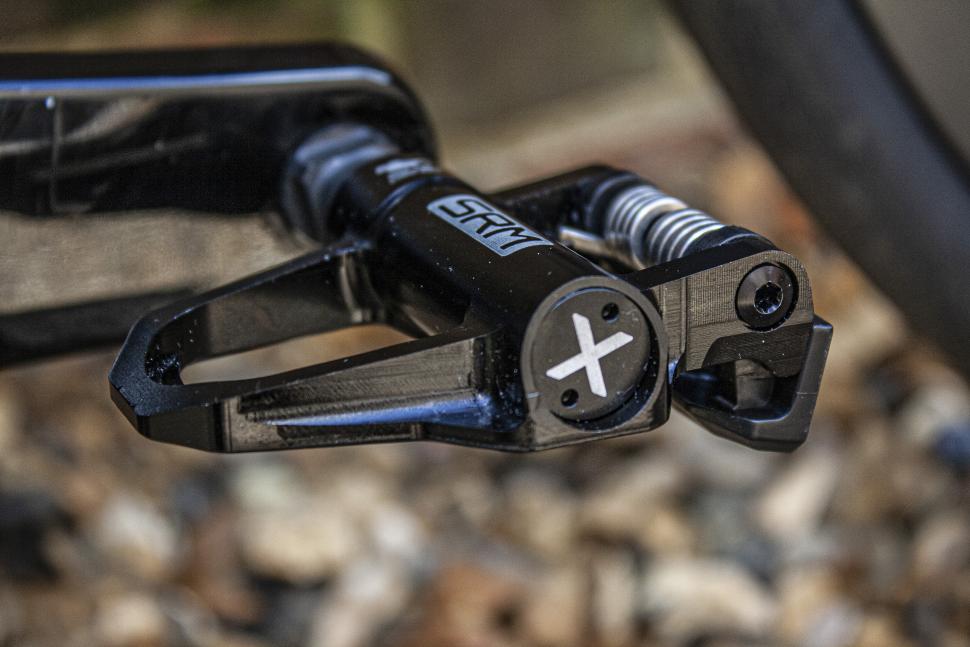
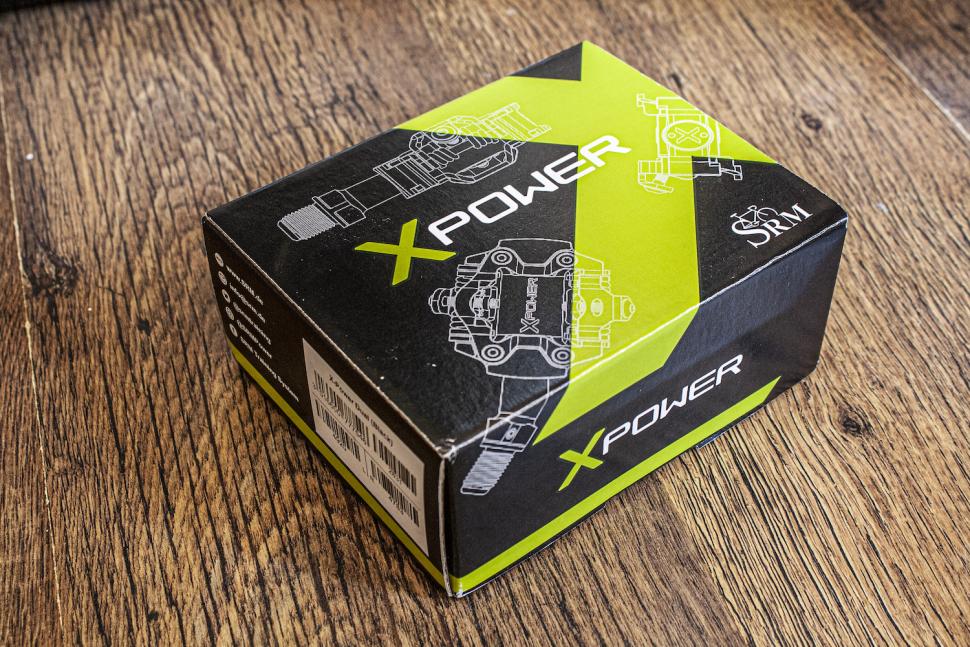
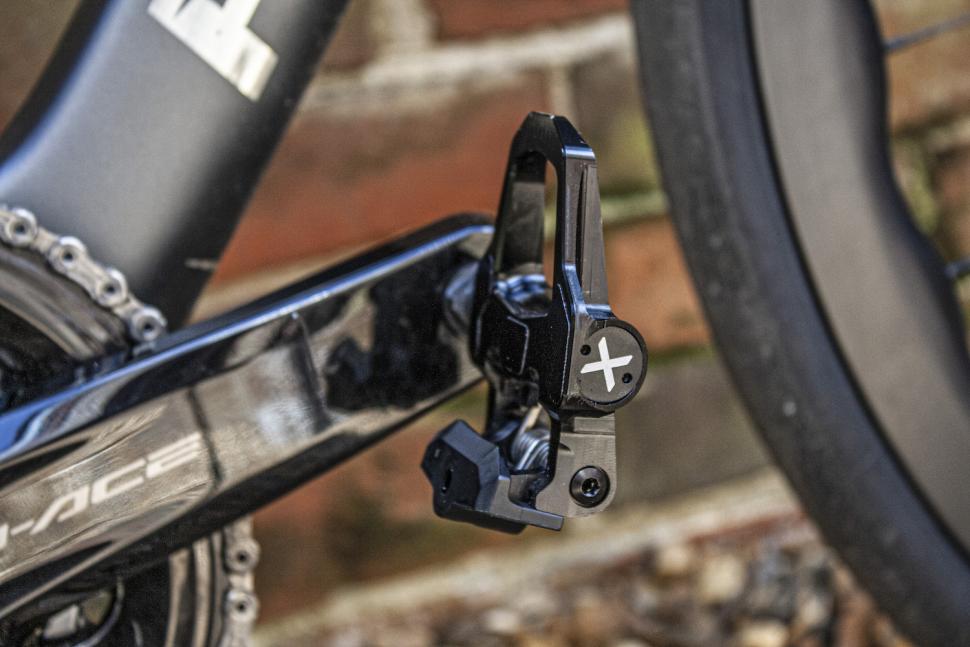
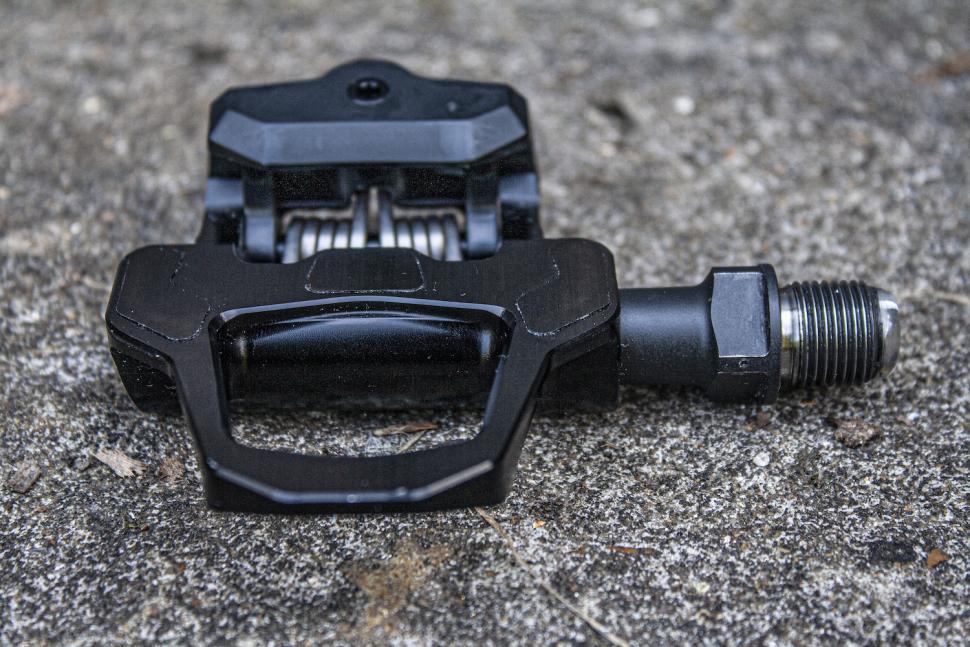
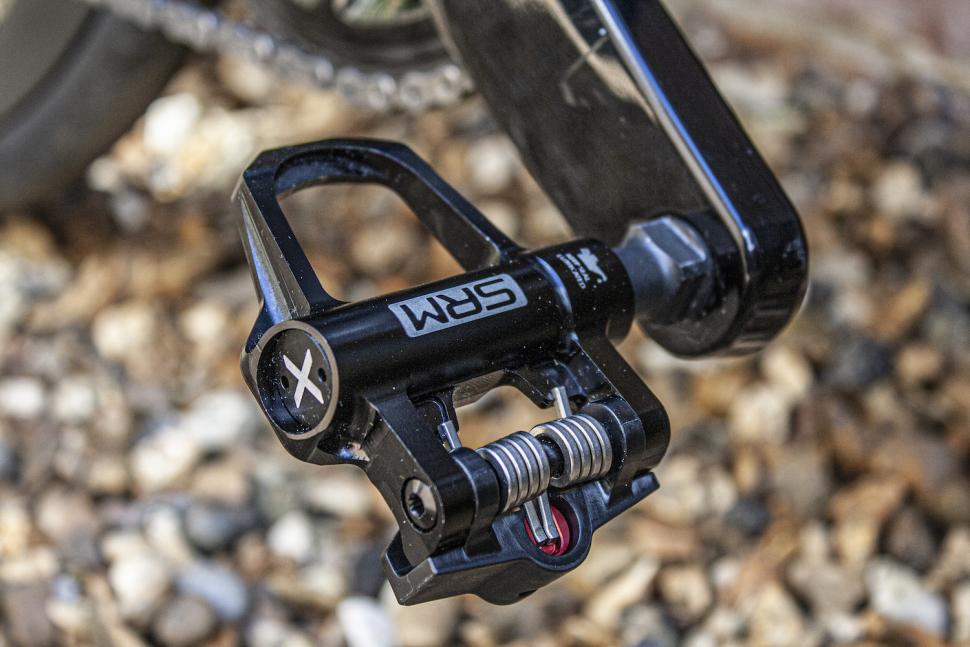
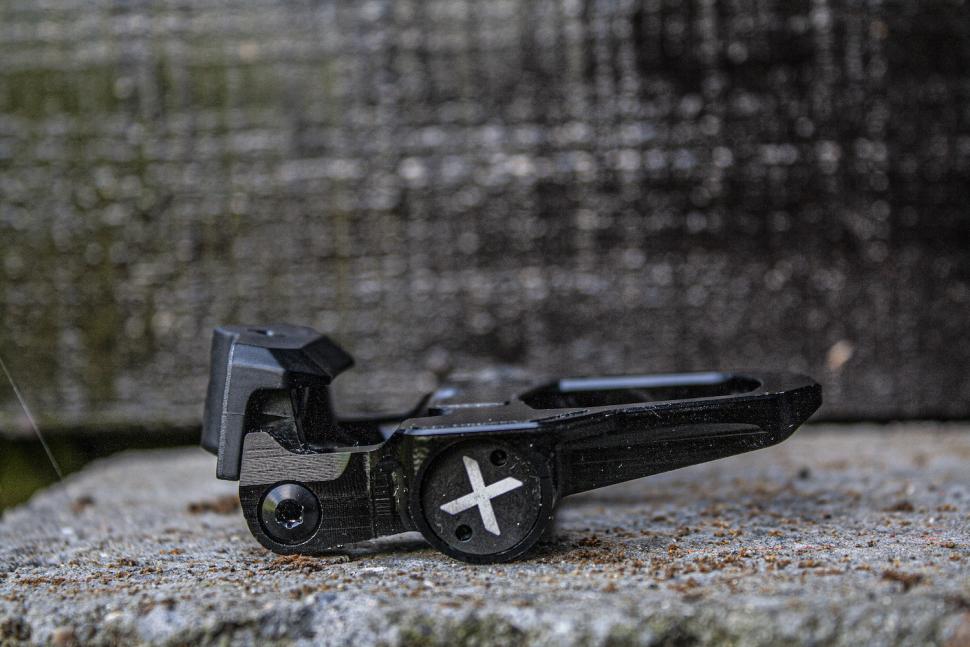
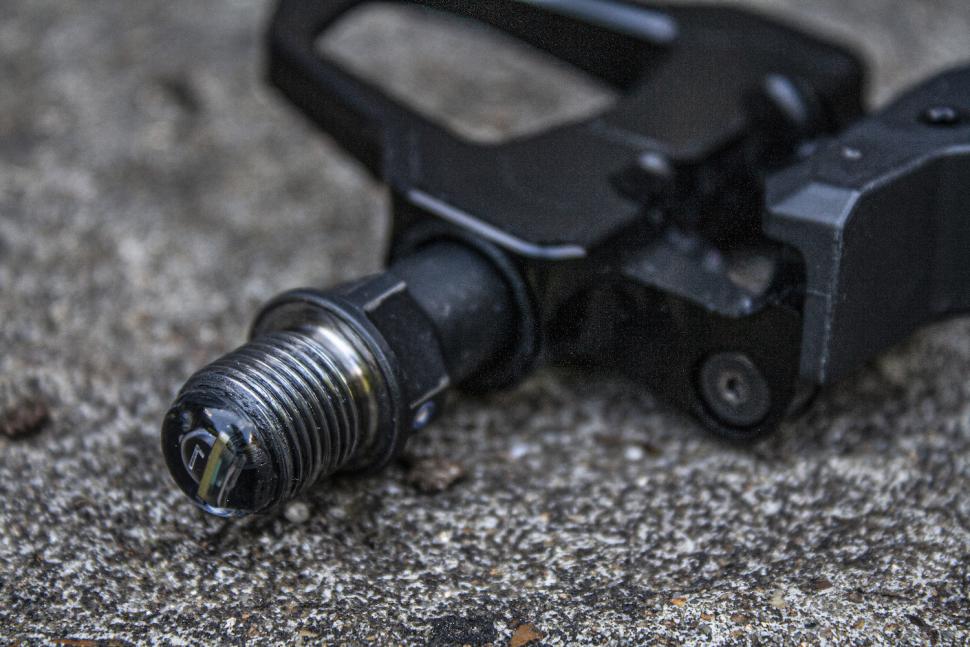
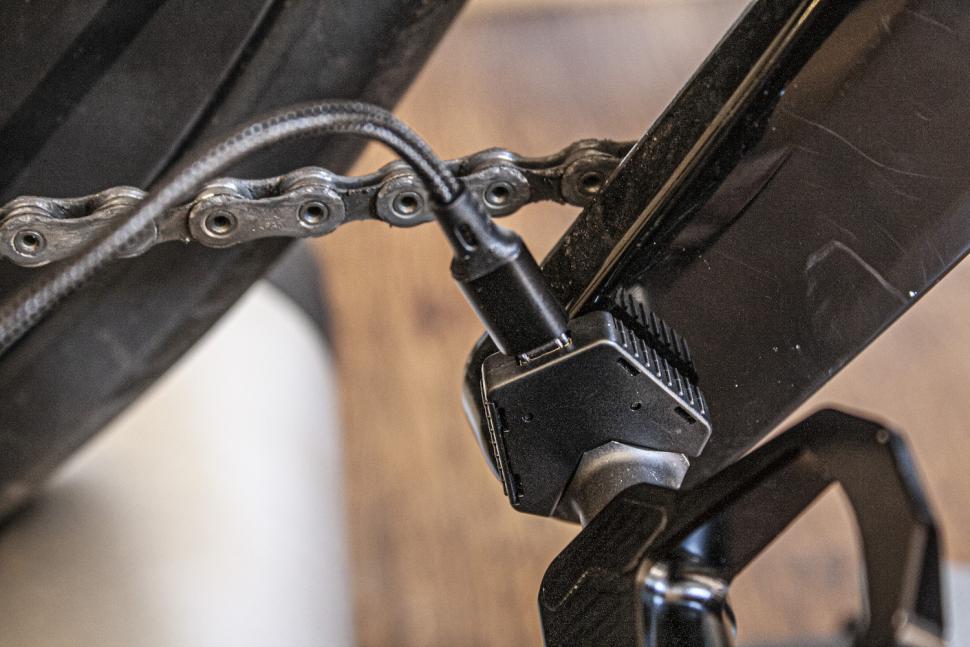
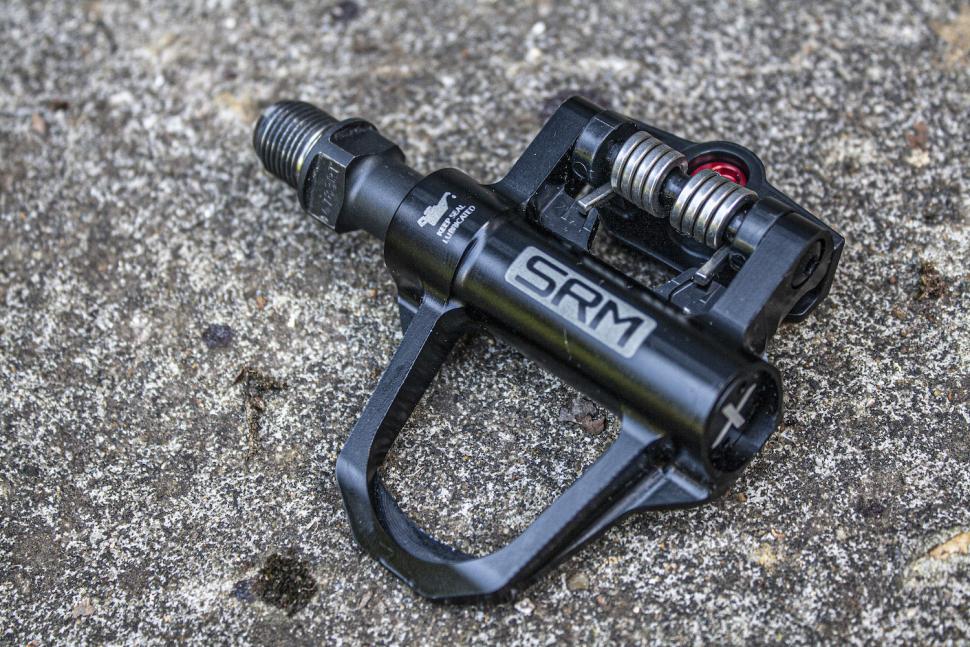






















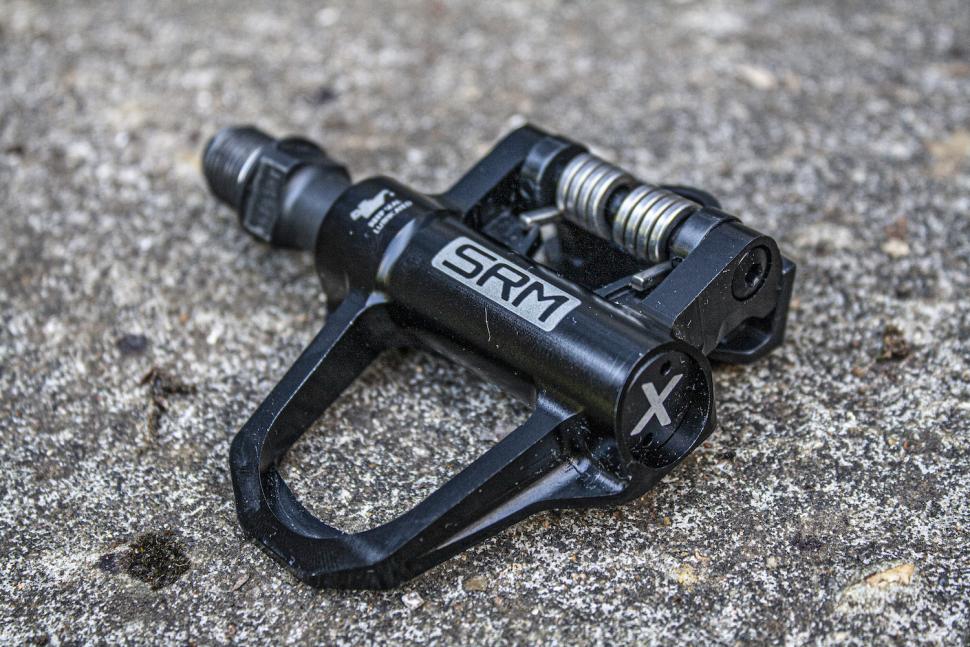
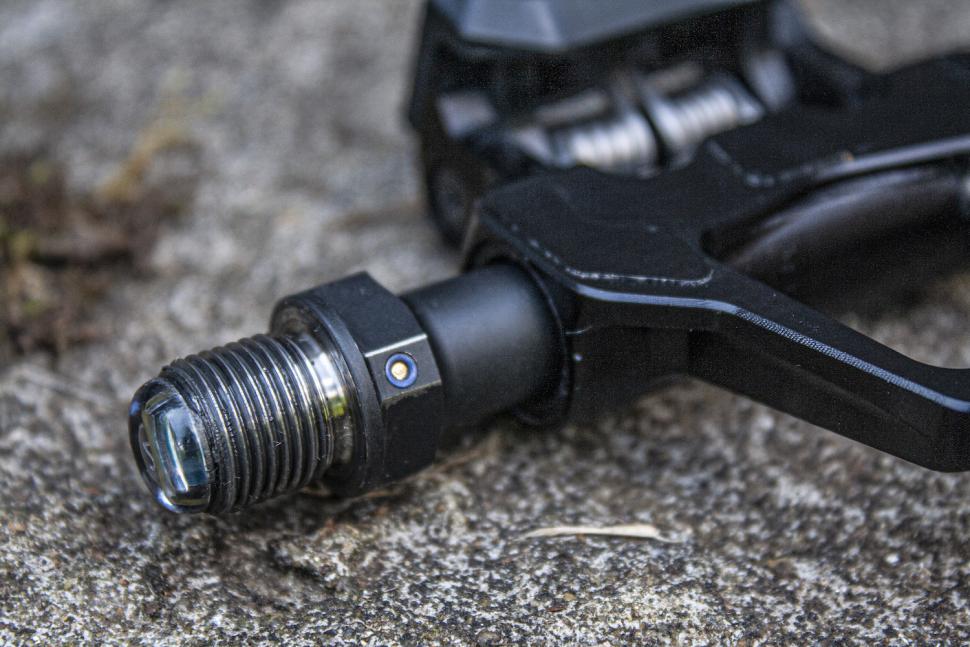
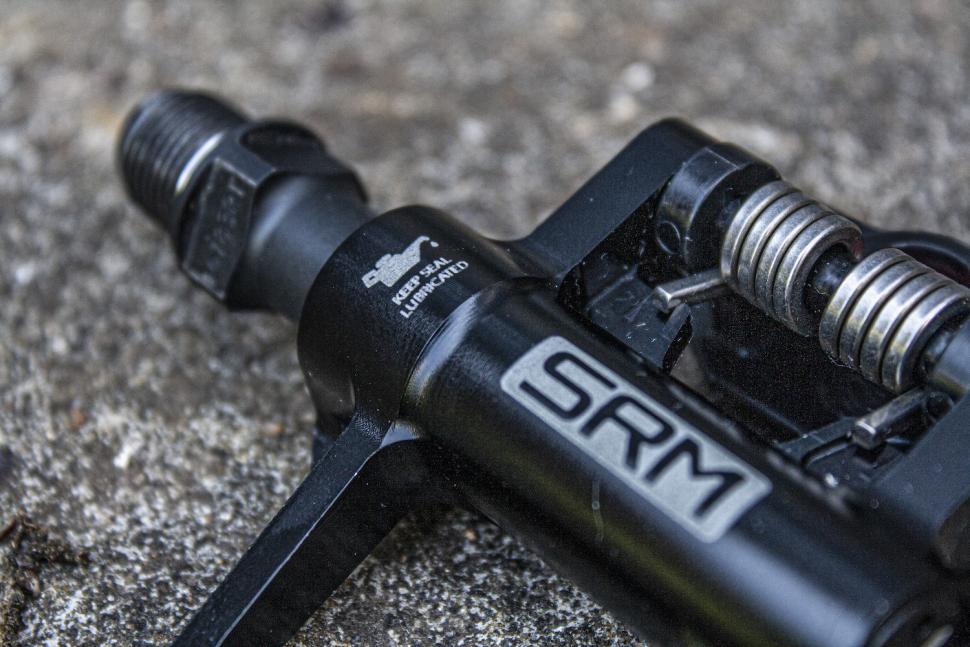
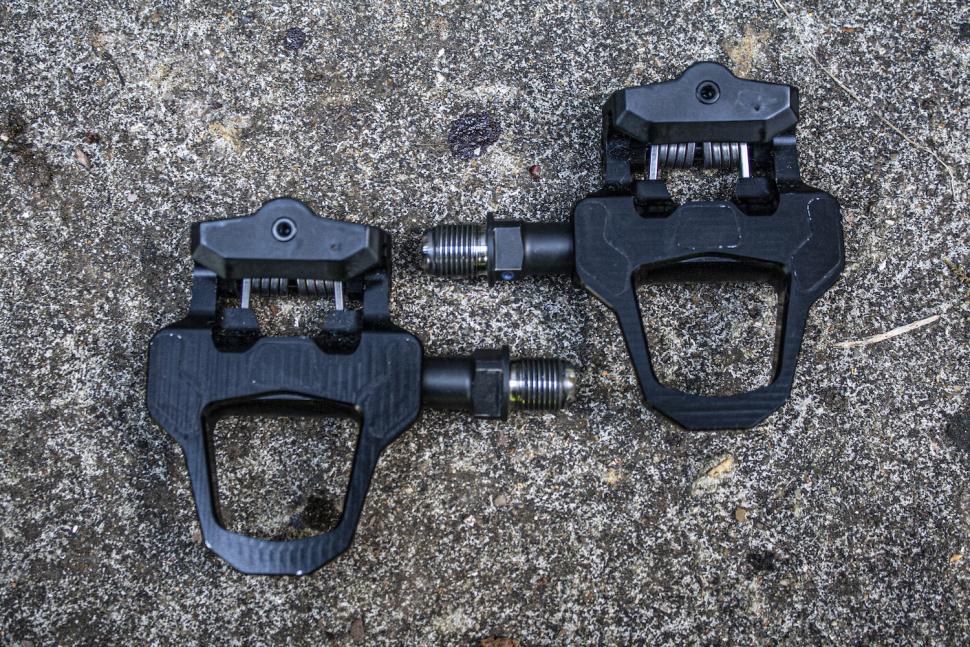
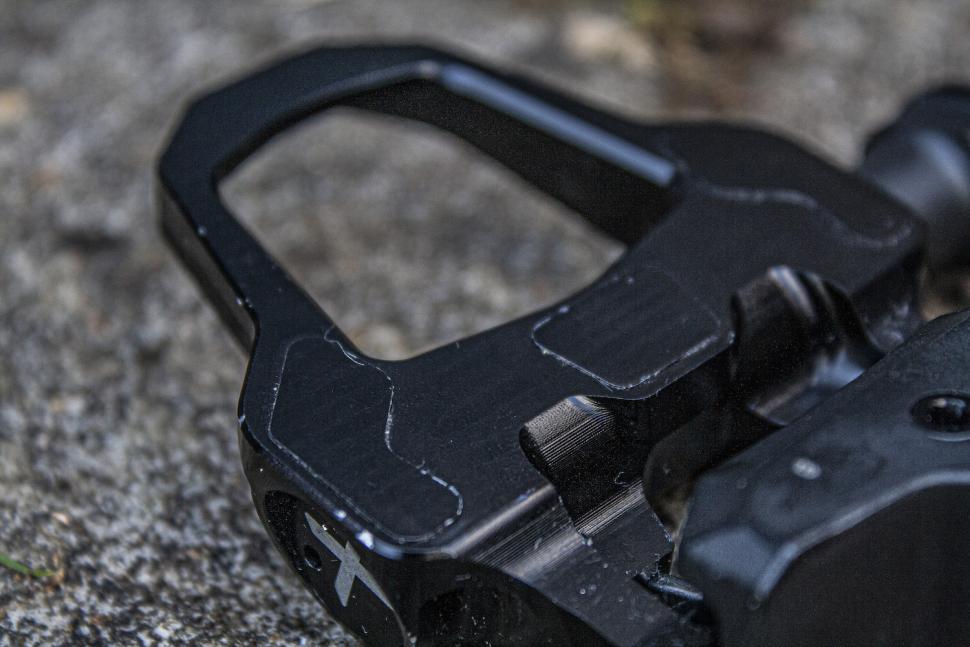
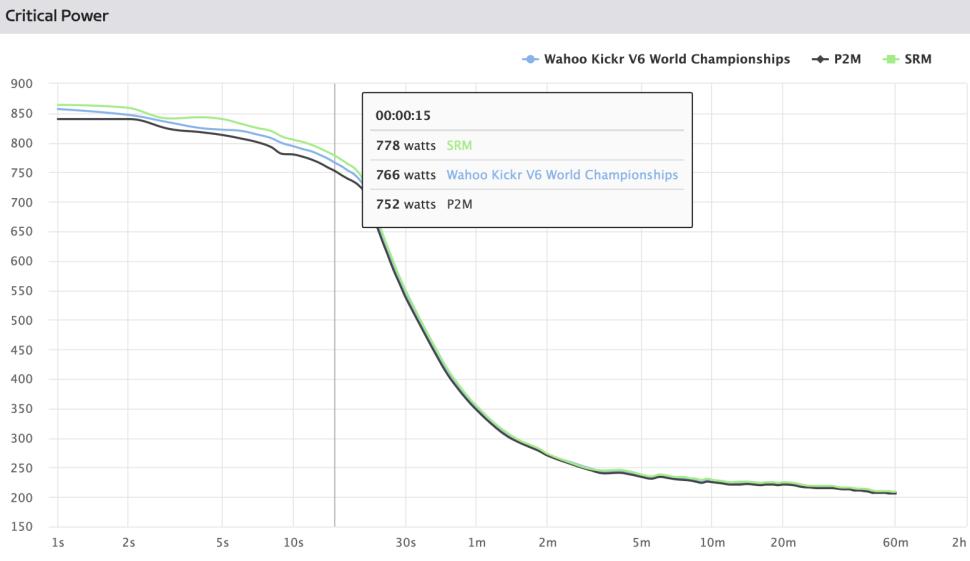
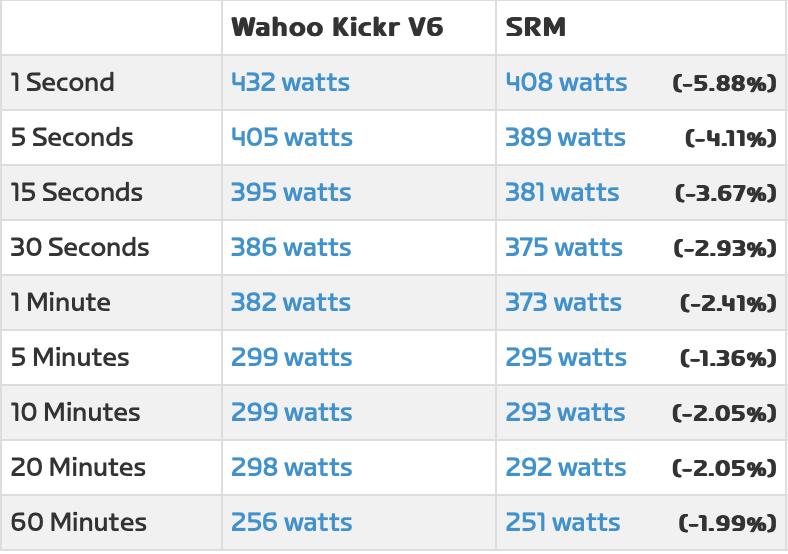
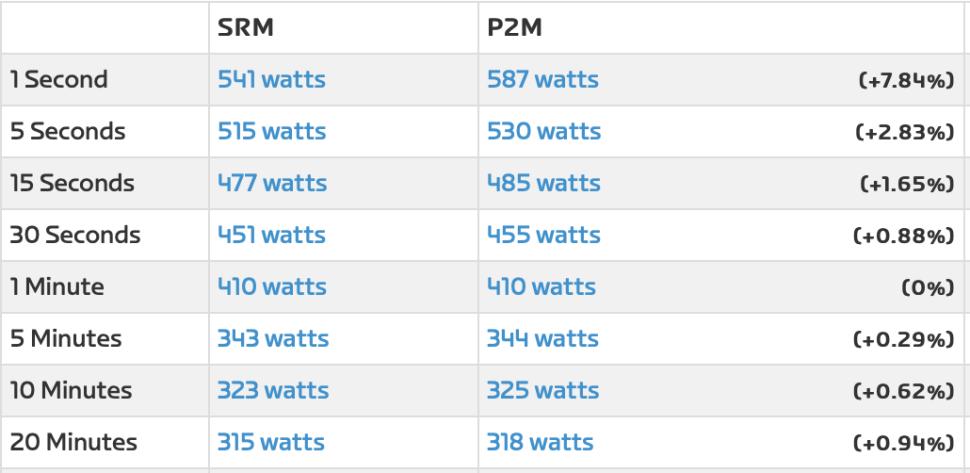
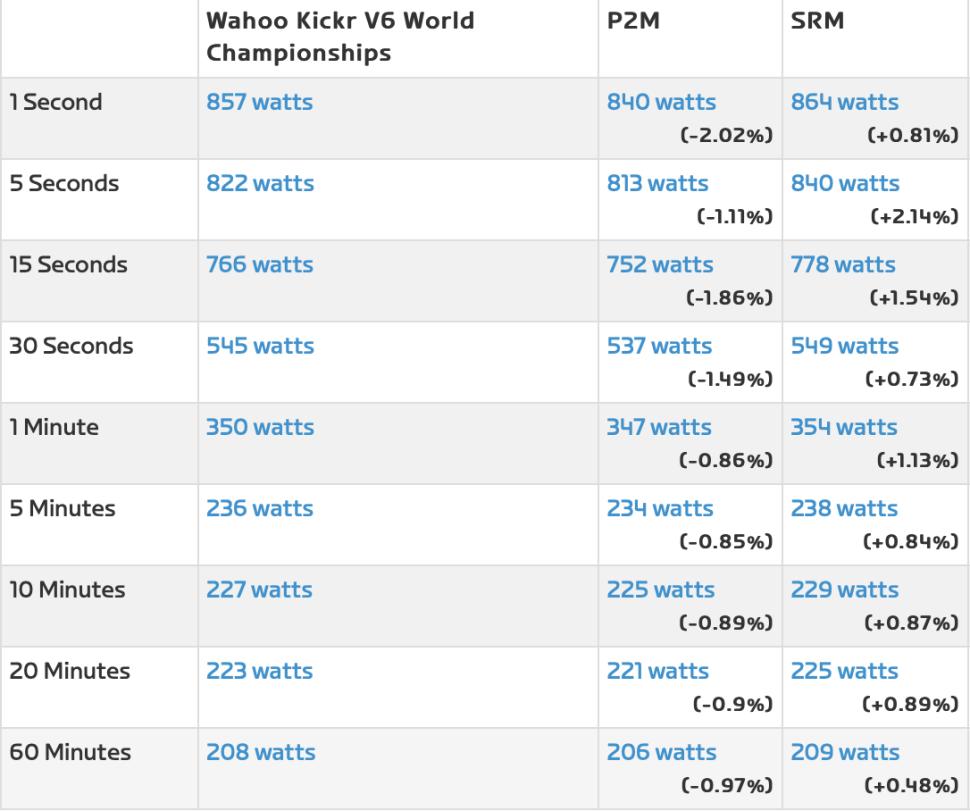

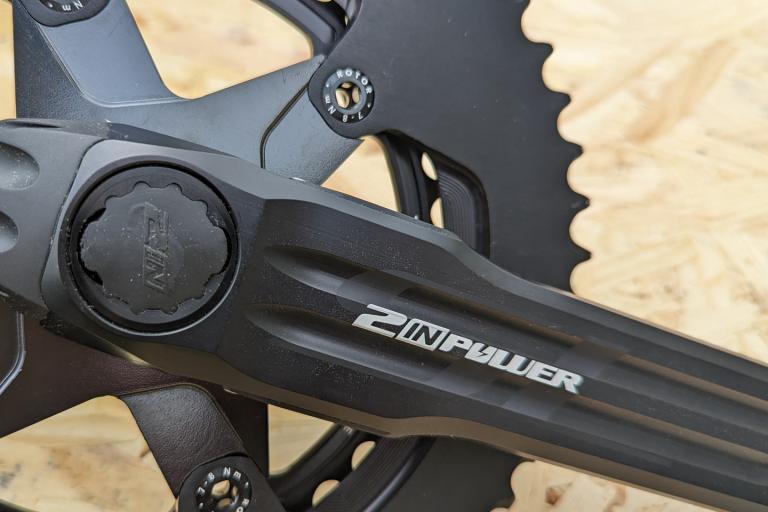
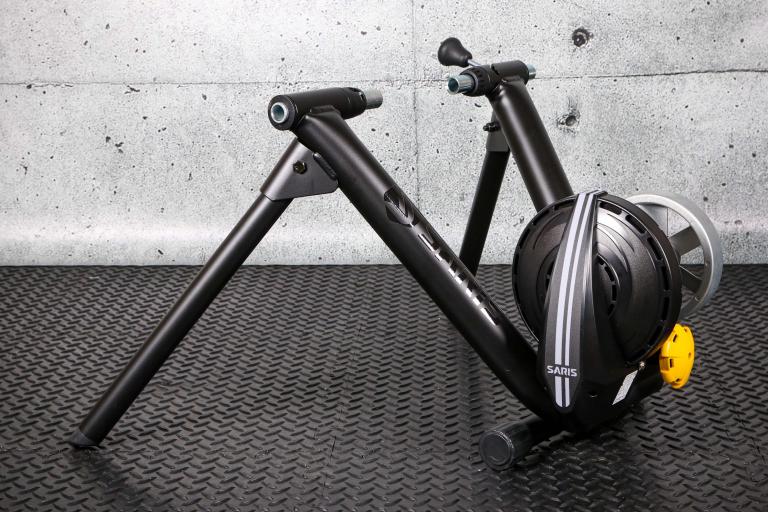


Add new comment
2 comments
Absolutely no way I'm in the market for these, but at more than 1200 quid I would expect the machining on these to be top notch. The machining marks on these pedal bodies looks really really cheap. I think it was more a case of power meter first, and second rate pedals from AliExpress.
Why would you give something that doesn't match it's insane price in extra accuracy, quality or features 9/10? That makes no sense. That makes it a 6/10 product at best.